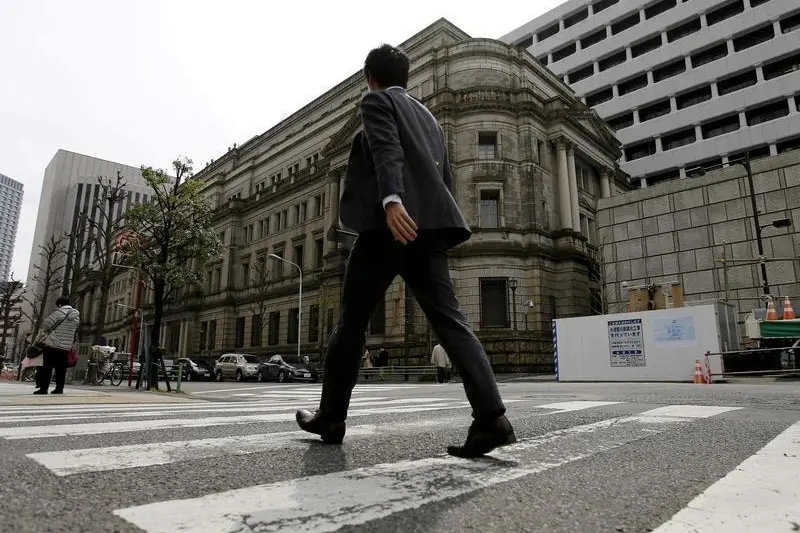PHOTO
The Bank of Japan will likely cut its economic forecasts at its next quarterly review in October, as slowing global demand and a resurgence in COVID-19 infections hurt exports and consumption, the bank's former top economist Seisaku Kameda said on Monday.
Japan's economic recovery is at a "critical juncture" as consumption appears to have stalled during the summer, dashing policymakers' hope households will boost spending with savings accumulated during the pandemic, Kameda told Reuters.
"There's a chance consumption will stall or only barely grow in the third quarter," as a renewed increase in COVID-19 cases and rising living costs hit households, he said. "The economy's recovery from the pandemic may be under threat."
Kameda said the Bank of Japan (BOJ) may cut its growth forecast for the fiscal year ending March 2023 to 2% or lower, from the current forecast of 2.4%, made in July.
The central bank may also slash its growth forecast for next fiscal year from the current 2.0% due to heightened prospects of a global economic slowdown, he said.
Having headed the BOJ's research and statistics department until April, Kameda is well versed in the bank's crafting of its quarterly forecasts. He is now executive economist at a think tank affiliated with Japanese non-life insurer Sompo Holdings.
On the price outlook, Kameda said Japan's core consumer inflation may briefly reach 3% later this year due to soaring fuel and food costs.
While inflation will moderate next year as the effect of energy costs dissipate, it may still hover around the central bank's 2% target longer than expected as companies continue to pass on rising raw material costs to households, he said.
"What we're seeing is pure cost-push inflation, which could last longer than initially thought," Kameda said. "It's far from the kind of demand-driven inflation the BOJ is aiming for."
While Japan's fragile economy will justify keeping monetary policy ultra-loose, the BOJ may see scope to make minor tweaks to its massive stimulus programme in the future, he said.
Any such tweak could involve the BOJ's interest rate targets and guidance on the future policy path, to give itself more flexibility to adjust monetary policy, Kameda said.
"Moving interest rates a little bit won't have a major impact on the economy," he said.
Under a policy dubbed yield curve control, the BOJ pledges to guide short-term interest rates to -0.1% and the 10-year government bond yield to around 0%. (Reporting by Leika Kihara and Takahiko Wada Editing by Mark Potter)
Reuters





















